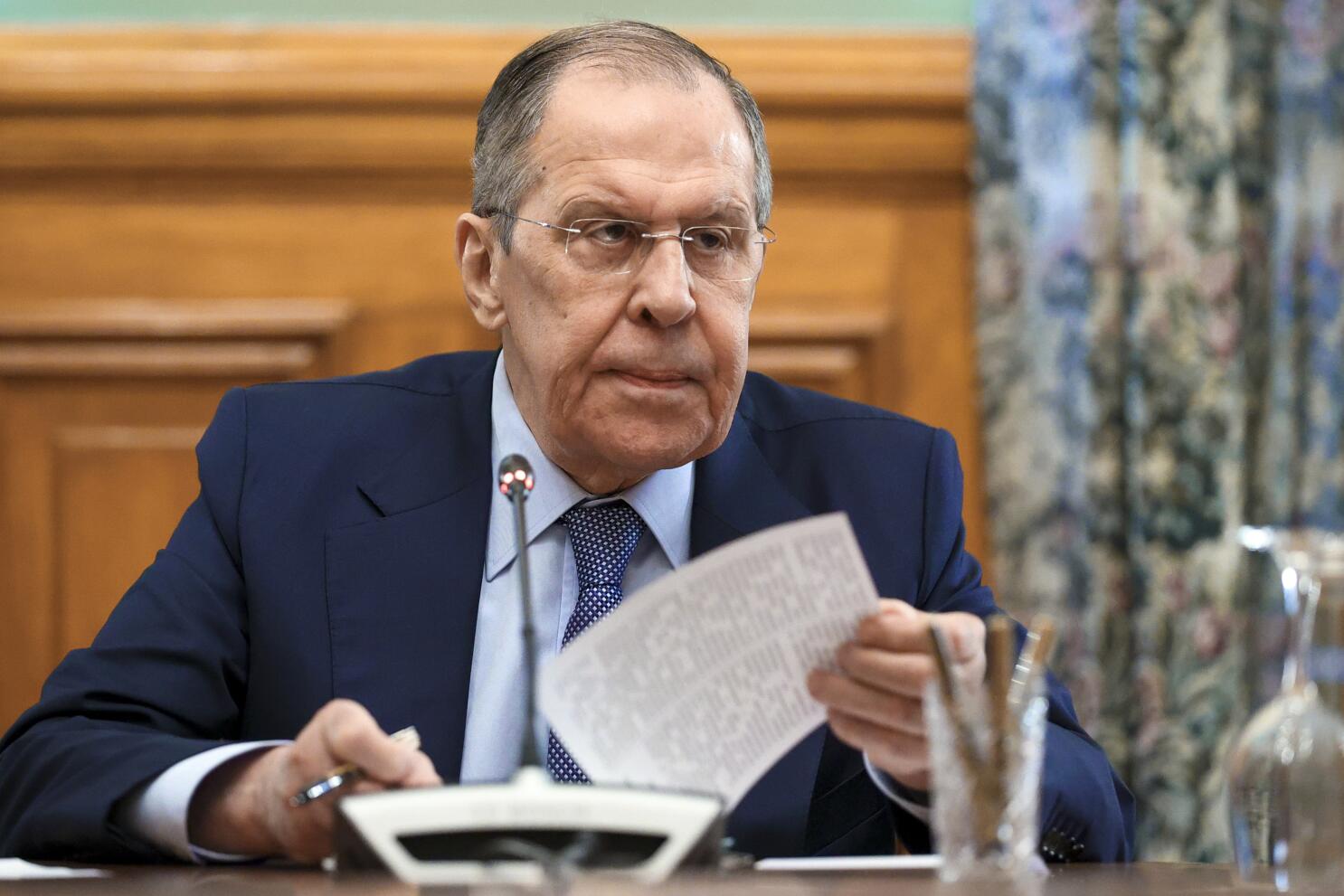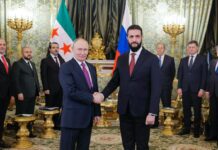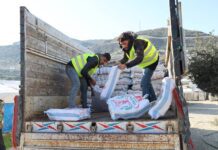
Russian authorities are ramping up efforts to link Ukraine and its military operations to Syria’s embattled Idlib region. Russia continues to build a narrative aimed at justifying potential military action in the area. In the latest claims, Russian Foreign Minister Sergei Lavrov accused Ukrainian military experts of working with Hayat Tahrir al-Sham (HTS), to manufacture drones for attacks against Russian forces stationed in Syria.
Lavrov’s statements, published in an article titled “The United Nations: To Become a Center for Coordinating the Actions of States Again” on the Russian Foreign Ministry website, were further disseminated by state-controlled media outlets such as RT. He alleged that Ukraine, with US coordination, is assisting HTS in developing and deploying drones as part of an ongoing effort to target Russian interests in Syria.
“Ukrainian military experts are actively training HTS in drone production, to conduct operations against Russian forces,” alleged Lavrov. According to the article, the operation is part of an international conspiracy, suggesting that Ukraine’s involvement is directly supported by Western powers. “The Western coalition continues to strike Syrian territory, encouraging the Kyiv regime to carry out similar terrorist activities against Russian regions,” he claimed.
Russia’s allegations come as tensions in Syria’s Idlib province, continue to rise at the fear of renewed attacks by Assad and his allies. Russian forces have been supporting Assad’s regime through nine devastating years of war and occupation, and Idlib remains a bastion of resistance. Moscow has frequently sought to justify its operations in the liberated areas by painting attacks against civilians as a “fight against terrorism.”
However, the recent accusations linking Ukraine to HTS are being viewed by many as part of a concerted propaganda campaign designed to build a pretext for further Russian military actions in Idlib. The region has long been under pressure from both Russian and Assad regime forces, with every ceasefire over the years violated by the regime and allies.
Russia’s persistent claims of Ukrainian involvement in Syria are not new. Last month, Russian media outlets and a Turkish paper reported that 250 Ukrainian military experts were training militants from the Turkestan Islamic Party (TIP) as well as trading drones for fighters and selling drone equipment to HTS.
These allegations have been repeatedly denied by both Ukrainians and revolutionary factions in Syria. Western officials have also dismissed these claims as unfounded and part of Russia’s broader disinformation campaign aimed at discrediting Ukraine and its international allies.
In addition to these credulous claims, Russia has recently issued ominous “warnings” of a potential chemical attack in Idlib, which it claims would be carried out by Western and Ukrainian intelligence to frame the Assad regime. Which many have taken as a not-so-subtle threat of an impending chemical weapons attack by Russian and Assad forces.
These claims have alarmed Syrian civilians and international observers, as Russia’s narrative around chemical attacks has historically been a precursor to escalations in military operations. In previous instances, accusations of chemical weapons use have been used as a justification for Russian and Assad regime offensives or as covers for war crimes and atrocities.








